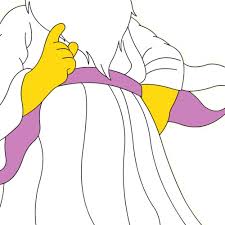Eighteenth Sunday in Ordinary Time
“… you give them something to eat.” Mt. 14: 16
Today’s gospel tells the story of the most important miracle Jesus ever performed – a miracle so profound and rich in meaning that it is the only one that is described in all four gospels.
The only one.
The story begins with a tragedy: the announcement of the death of John the Baptist – a death that took place during a banquet given by King Herod; a death surrounded by pride and envy and arrogance and scheming, culminating in the murderous beheading of Jesus’ friend and mentor.
The gospel then tells us how Jesus, when hearing this terrible news, “withdrew” to be by himself. He wanted to be alone so that he could grieve the loss of someone so important to him.
“But the crowds heard and followed him,” the gospel tells us. So many, in fact, that Jesus was soon overcome with a “great crowd.”
And here is where the essence of Jesus becomes fully visible: “his heart was moved with pity for them, and he cured the sick.” (Mt. 14, 3)
Compassion.
Everything Jesus does comes from that same compassion, that same “heart moved with pity.”
And Jesus doesn’t stop with healing the sick. He goes even further. Jesus feeds the hungry.
And he does this by way of a banquet that is totally opposite of the one during which John the Baptist was beheaded by King Herod.
Look at the contrast between the two banquets:
Jesus creates a feast in which instead of gluttonous quantities of food and drink, there are simply five loaves and two fish; instead of sumptuous couches, there is only the grass to sit on; instead of lewd and bawdy entertainment, there is only the laughter and conversation with one another; instead of extravagant waste, there is simply enough.
The scene reminds me of the old story describing the difference between heaven and hell.
In heaven there is a large banquet table on which sits every imaginable delicacy, and around which every plate is full, every chair is occupied, and everyone is enjoying a bountiful feast. Hell looks exactly the same, except that everyone seated at the table is starving. They’re starving because the forks are too long and they can’t feed themselves. In heaven, the forks are equally as long, but they are used to feed each other.
The story of Jesus feeding the multitudes was so important to the earliest followers of Jesus because it represents the ultimate model for us. It perfectly depicts the kind of world we want to create – one in which we do as Jesus did; one in which we feed each other.
“You give them something to eat,” Jesus said directly to those first disciples – and to each of us today. You give them homes to live in. You give them jobs to work at. You give them freedom from violence.
And there’s still another dimension to today’s gospel.
It’s this:
“They all ate and were satisfied, and they picked up the fragments left over – twelve wicker baskets full.” (Mt. 14:20)
Abundance.
More were fed than anyone ever dreamed possible at the Jesus banquet. “Five loaves and two fish are all we have here,” say the disciples.
Kind of sounds like you and me, doesn’t it? “I haven’t got that much. I can’t do that. Let people do it for themselves.” Or, as the disciples put it: “They can go to the villages and find food for themselves.” (Mt. 14:18)
Then came the miracle:
Not only did not one of the more than 5,000 people go away hungry, but there were basketsful left over.
What it says to us is that abundant love can meet the needs of this world we live in if we’re willing to do our part in sharing. What it says is that we are the ones who must pass the loaves around. Because, if we, the followers of Jesus, don’t, who will?
Once again, the invitation here is to see with new eyes: to see greater possibilities, and to dream a bigger dream for ourselves and all of creation.
What would it mean for you and me to dream bigger, to see more than meets the eye at every turn, to trust that with God there are no limitations?
What would it mean to believe that our little basketsful, when placed in the compassionate hands of Jesus, would become a bounty of grace for others?
That, in fact, is precisely what we do each Sunday when we come together as a community of Jesus followers. We do again what he did in this remarkable story, and what he asked us to do on the night before he died.
In both cases, he modeled four verbs for us to emulate:
take, bless, break, share.
“Taking the five loaves and the two fish, and looking up to heaven, he broke the loaves, and gave them to the disciples, who in turn gave them to the crowds.” (Mt. 14: 19)
We are invited to do the same:
take our lives;
ask God’s blessing upon them;
break them open in generosity and compassion;
“give them to the crowds.”
As we celebrate our Eucharist together this day, even with our opportunities limited by the pandemic we struggle with, let us become what we celebrate:
A people who, having eaten the Body of Christ and having drunk his Blood, will now go out into the little worlds we all live in, and with “hearts moved with pity,”
“Give them something to eat.”
Ted Wolgamot, Psy.D.


